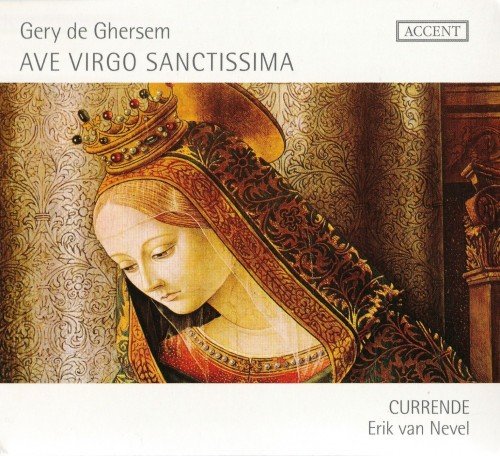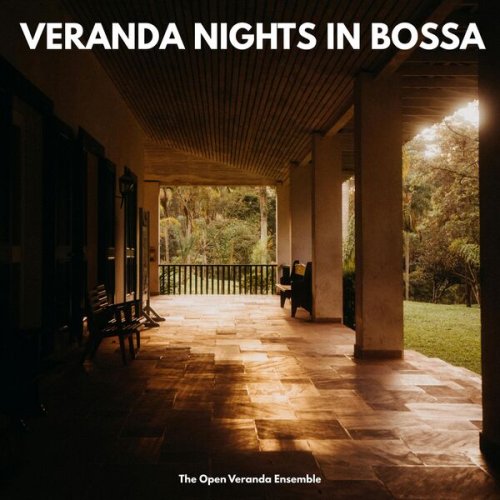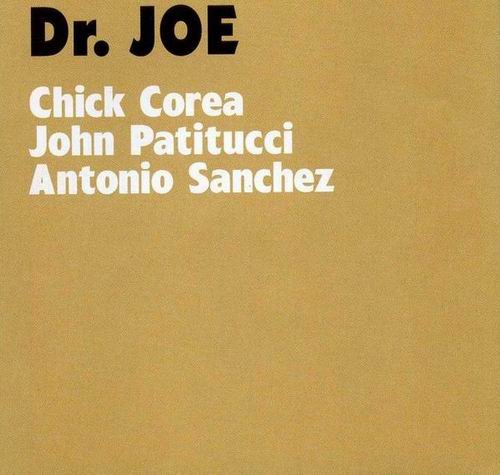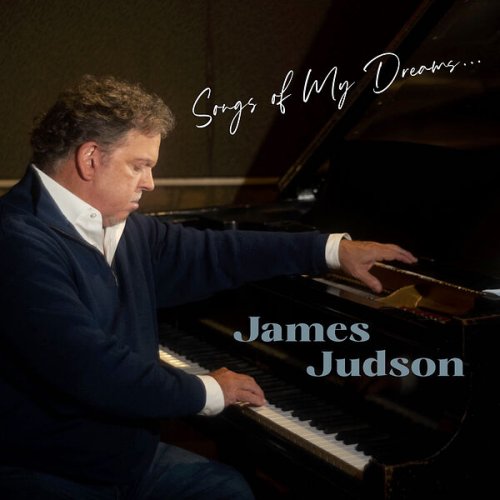Currende & Erik Van Nevel - Gery de Ghersem: Ave Virgo Sanctissima (2011)

Artist: Currende & Erik Van Nevel
Title: Gery de Ghersem: Ave Virgo Sanctissima
Year Of Release: 2011
Label: Accent
Genre: Classical
Quality: FLAC (tracks + .cue, log, artwork)
Total Time: 01:15:40
Total Size: 307 MB
WebSite: Album Preview
Tracklist:Title: Gery de Ghersem: Ave Virgo Sanctissima
Year Of Release: 2011
Label: Accent
Genre: Classical
Quality: FLAC (tracks + .cue, log, artwork)
Total Time: 01:15:40
Total Size: 307 MB
WebSite: Album Preview
01 Kyrie 5:19
02 Gloria 7:29
03 Credo 12:00
04 Sanctus 5:36
05 Agnus Dei 3:43
06 Ave virgo sanctissima 3:58
07 Regina caeli 0:39
08 Regina caeli a 8 6:03
09 Regina caeli 11:49
10 Regina caeli laetare 2:52
11 Regina caeli laetare 3:14
12 Regina caeli a 4 8:15
13 Salve regina, vita dulcedo 4:47
The quality of other recordings which Currende and Erik van Nevel have made for Accent and other labels was enough for me to know that this was likely to be an enthusiastic review even before the CD was out of its gatefold cover. I made their recording of the music of Francesco Mancini my Recording of the Month (Et’cetera KTC4031 – see review) and I recommended their Buxtehude Cantatas and Motets (Accent ACC24184 – see June 2010 Download Roundup: First Impressions).
The inclusion of the one surviving Mass by the Flemish composer Gery de Ghersem, most of whose music perished in the fire which accompanied the Lisbon earthquake, was an added incentive to listen to this before the other CDs and DVDs which arrived in the same batch. In the event, neither the music nor the performances disappointed and the recording and documentation provided added enjoyment.
The additional works are not chosen at random. de Ghersem borrowed from Francesco Guerrero’s Ave Virgo for his Mass, and five posthumous Masses by Philippe Rogier, his colleague in Madrid, accompany de Ghersem’s sole contribution to the 1598 collection in which his seven-part Mass was published. The English exile Peter Philips and Pieter Cornet were de Ghersem’s colleagues in Brussels.
Thematically, too, the programme holds together: the rest of the music is in honour of the Virgin Mary – Regina Cœli and Salve Regina are two of the anthems in her praise at the end of Vespers or Compline at different times of the year. Rarely has she been depicted more regally (Regina Cœli = Queen of Heaven) than on the Crivelli painting employed for the cover of the CD. Rogier’s music is gradually being rediscovered (two fine recent recordings from Linn and one from Hyperion*) and his two-choir version of Regina Cœli (track 10) is one of the highlights of the programme alongside de Ghersem.
de Ghersem’s music is in the high renaissance manner, still in full flow in Northern Europe in 1598; though I suspect that it would have sounded a little old-fashioned to contemporary Italian ears, that’s certainly not to decry it. Indeed, I very much welcome this (unique) chance to hear the music of this ‘illustrious unknown’ as the notes in the booklet describe him and my admiration for the music of Guerrero, Rogier and Philips will be well known to those who regularly read my reviews. If anyone does.
The singing of Currende and Erik van Nevel’s direction are every bit as excellent as I had imagined and the recording does them full justice. They maintain a brisk pace – for example in Peter Philips’s 8-part Salve Regina of 1613 (tr.13), by comparison with the recording by Winchester Cathedral on Hyperion CDH55254. Both tempi work well when one takes into account the comparative sizes of the forces and the different acoustics: in fact, anyone who succumbs to the appeal of Philips’s music might well move on to that inexpensive Hyperion recording or the equally inexpensive Naxos recording of the 5-part works which I recommended alongside it in my May 2010 Download Roundup.
The multi-lingual notes by Renate Weytjens are informative and set de Ghersem and his music well in context. The English translation is idiomatic, as is that of the texts. The version of the ordinary of the Mass follows the (flat and awful) modern-language ICET version employed in Roman Catholic and Anglican usage, with ‘we’ substituted for the ‘I’ (credo, not credimus) of the Latin text. The English translation omits the final two clauses of the Creed and the French the final clause. The German translation runs over to the next page.
For some reason, Accent fail to indicate the timing of track 6, Guerrero’s Ave Virgo Sanctissima: I had to obtain that and the total time from classicsonline.com, who offer the CD as an mp3 download for £7.99 – here. The back cover of the gatefold manages to misprint de Ghersem as ‘de Gershem’. You can also listen courtesy of the Naxos Music Library if you have access and would like to try the recording out. Neither classicsonline.com nor the Naxos Library offers the excellent booklet, however.
Lovers of renaissance polyphony need not hesitate to acquire this recording. -- Brian Wilson, MusicWeb International
The inclusion of the one surviving Mass by the Flemish composer Gery de Ghersem, most of whose music perished in the fire which accompanied the Lisbon earthquake, was an added incentive to listen to this before the other CDs and DVDs which arrived in the same batch. In the event, neither the music nor the performances disappointed and the recording and documentation provided added enjoyment.
The additional works are not chosen at random. de Ghersem borrowed from Francesco Guerrero’s Ave Virgo for his Mass, and five posthumous Masses by Philippe Rogier, his colleague in Madrid, accompany de Ghersem’s sole contribution to the 1598 collection in which his seven-part Mass was published. The English exile Peter Philips and Pieter Cornet were de Ghersem’s colleagues in Brussels.
Thematically, too, the programme holds together: the rest of the music is in honour of the Virgin Mary – Regina Cœli and Salve Regina are two of the anthems in her praise at the end of Vespers or Compline at different times of the year. Rarely has she been depicted more regally (Regina Cœli = Queen of Heaven) than on the Crivelli painting employed for the cover of the CD. Rogier’s music is gradually being rediscovered (two fine recent recordings from Linn and one from Hyperion*) and his two-choir version of Regina Cœli (track 10) is one of the highlights of the programme alongside de Ghersem.
de Ghersem’s music is in the high renaissance manner, still in full flow in Northern Europe in 1598; though I suspect that it would have sounded a little old-fashioned to contemporary Italian ears, that’s certainly not to decry it. Indeed, I very much welcome this (unique) chance to hear the music of this ‘illustrious unknown’ as the notes in the booklet describe him and my admiration for the music of Guerrero, Rogier and Philips will be well known to those who regularly read my reviews. If anyone does.
The singing of Currende and Erik van Nevel’s direction are every bit as excellent as I had imagined and the recording does them full justice. They maintain a brisk pace – for example in Peter Philips’s 8-part Salve Regina of 1613 (tr.13), by comparison with the recording by Winchester Cathedral on Hyperion CDH55254. Both tempi work well when one takes into account the comparative sizes of the forces and the different acoustics: in fact, anyone who succumbs to the appeal of Philips’s music might well move on to that inexpensive Hyperion recording or the equally inexpensive Naxos recording of the 5-part works which I recommended alongside it in my May 2010 Download Roundup.
The multi-lingual notes by Renate Weytjens are informative and set de Ghersem and his music well in context. The English translation is idiomatic, as is that of the texts. The version of the ordinary of the Mass follows the (flat and awful) modern-language ICET version employed in Roman Catholic and Anglican usage, with ‘we’ substituted for the ‘I’ (credo, not credimus) of the Latin text. The English translation omits the final two clauses of the Creed and the French the final clause. The German translation runs over to the next page.
For some reason, Accent fail to indicate the timing of track 6, Guerrero’s Ave Virgo Sanctissima: I had to obtain that and the total time from classicsonline.com, who offer the CD as an mp3 download for £7.99 – here. The back cover of the gatefold manages to misprint de Ghersem as ‘de Gershem’. You can also listen courtesy of the Naxos Music Library if you have access and would like to try the recording out. Neither classicsonline.com nor the Naxos Library offers the excellent booklet, however.
Lovers of renaissance polyphony need not hesitate to acquire this recording. -- Brian Wilson, MusicWeb International

![Neue Grafik - Rachael (2026) [Hi-Res] Neue Grafik - Rachael (2026) [Hi-Res]](https://img.israbox.com/img/2026-01/29/epe0apr8xle4qpoyvu7kaz37u.jpg)






